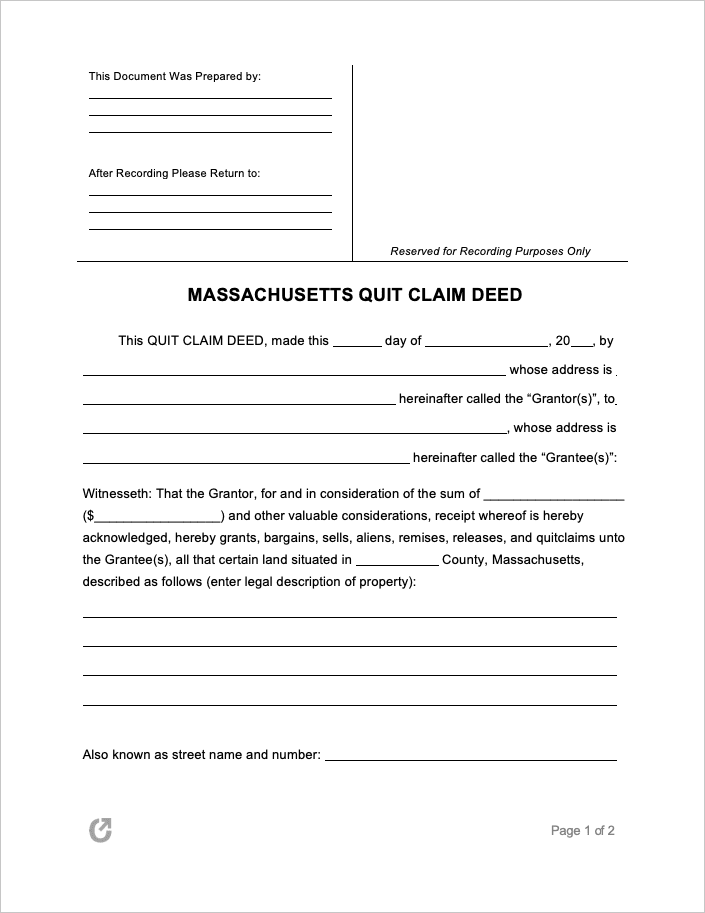Massachusetts Quit Claim Deed Form
The Massachusetts Quit Claim Deed is a legal form that is executed by an individual who wishes to reassign the interest they hold over a property to another individual. According to state law, a quit claim deed, “shall be sufficient to convey all the estate which could lawfully be conveyed by a deed of bargain and sale.”
It should be kept in mind that what separates the deed-type from other types is that there are no guarantees provided by it. For this reason, the parties involved (called the grantor and grantee(s), respectively) should be already known to one another. However, even if the parties have an existing relationship, it is best practice to run a title search to double-check there are no unexpected conflicting claims to the property.
Download: Adobe PDF, MS Word (.docx)
Laws: Section 11: Quitclaim Deed
Requirements
- Address (Ch.183; § 6B): The property’s street address should be noted in the margin of the form.
- Certificate of Acknowledgment or Proof (Ch. 183; § 29): The form must either have 1) a certificate of its acknowledgment or 2) a certificate of the proof of its due execution. The certificate must be endorsed upon or annexed to the deed.
- Conveying Unregistered Land (Ch. 183; § 6A): If the property or land being conveyed is unregistered, the deed must provide sufficient details (as described in Section 6A) so that the property or land can be located within the registry.
- Full Consideration (Ch. 183; § 6): The amount of full consideration (i.e., the total price paid by the Grantee, including liens and encumbrances) must be stated in dollars. If the consideration is not in dollars, a description of the consideration must be included.
- Grantee’s Details (Ch. 183; § 6): The document must state the Grantee’s full name, residence, and post office address (if different).
- Language Considerations (Ch. 183; § 12 and § 17): State law establishes that the word “grant” represents the acts described by the words ”give, bargain, sell and convey.” These words should be avoided in the deed because they signal a guarantee or warranty that cannot be offered by the form-type. The form should also be sure to avoid describing itself as a “quickclaim covenant” or a “limited covenant,” as these are entirely different types of deeds which, unlike a quit claim deed, do provide some degree of title guarantee.
- Signing Requirements (Ch. 183; § 30): The form must be acknowledged by the Grantor or their attorney or representative before a justice of the peace or Notary Public.
How to File
Any deed created in Massachusetts must be recorded in the Registry of Deeds Office in whichever county or district the property is located. A filing fee will need to be paid, which the Registry of Deeds Fee Schedule states is one hundred and fifty-five dollars ($155.00) for a deed (subject to change).
In counties with land banks, other requirements may need to be upheld to qualify for recordation. In order to ensure the correct procedures are followed, the filer of the deed is recommended to contact their respective county for more detailed information.
